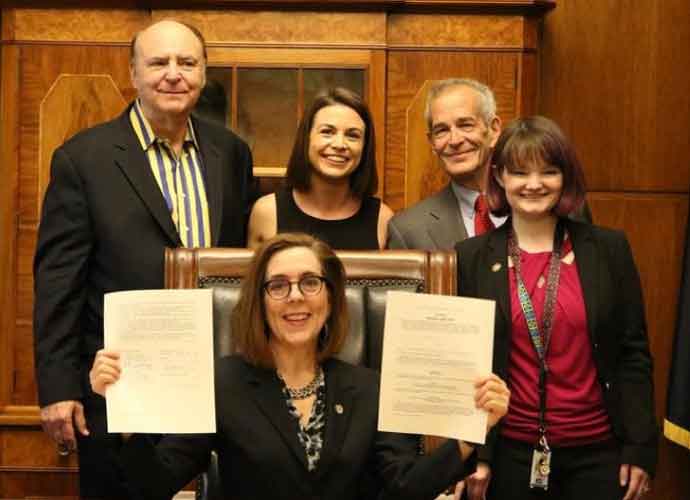Coalition To Abolish Electoral College Grows Nearer To The 270 Votes Necessary To Go Into Effect
A compact that would circumvent the Electoral College by giving states’ votes to whoever wins the national popular election is getting close to the 270 electors it needs to come into effect as Oregon joined the group Wednesday.
Subscribe to our free weekly newsletter!
A week of political news in your in-box.
We find the news you need to know, so you don't have to.
The National Popular Vote Interstate Compact is a non-profit that is attempting to ensure that whoever wins the national popular vote in a presidential election, and therefore represents the will of the majority, can become the president. The goal of this group is to convince enough states to join together that their combined number of electors reaches 270, meaning that whichever candidate the group gave its votes to would win the presidency. The plan will only go into effect once the organization has the 270 votes necessary.
Right now 15 states have joined the organization: California, Colorado, Connecticut, Delaware, Hawaii, Illinois, Massachusetts, Maryland, New Jersey, New Mexico, New York, Rhode Island, Vermont, and Washington, as well as Washington D.C. Their combined number of electors is 196, just 74 short of the requiste 270. Eight states have passed bills to join the coalition in at least one chamber of their legislature, but not all politicians are happy with the idea of eliminating the Electoral College. For example, the Nevada legislature passed a law to give their votes to the winner of the popular election, but Democratic Gov. Steve Sisolak vetoed the bill. “[It] could diminish the role of smaller states like Nevada in national elections and force Nevada’s electors to side with whoever wins the national popular vote, rather than the candidate Nevadans choose,” said Sisolak.
What Sisolak sees as a benefit of the Electoral College many see as a detriment. One of the biggest critiques of the current system is that it puts lots of emphasis on so-called swing states, such as Nevada, where the vote could go either Republican or Democrat. Since these states, such as Florida, are so important, most candidates spend most of their time campaigning there, neglecting places such as New York and California.
Another big problem with the Electoral College system is that it causes those whose political views don’t align with that of their state to feel as if their vote is wasted. Democrats in Alabama and Republicans in New York can’t really contribute anything to the national election, because their state consistently votes for one party. If this compact comes into effect, however, then the vote of all citizens will be equally as powerful.
If the Electoral College is abolished it will have a massive effect on American politics. No longer will candidates have to focus on smaller states such as Nevada, but they can instead set their sights on the massive populations of urban centers such as New York City, Chicago and San Francisco. Furthermore, voter turnout will become much more important as those in large cities, who don’t feel the need to vote since their area is almost always blue, suddenly become a much more powerful force. In 2016 California alone had 10 million citizens who didn’t vote. Eliminating the Electoral College would almost definitely benefit the Democrats more than the Republicans since 80% of American citizens live in urban areas.
It is still unclear whether or not enough states will join this coalition for it to come into effect. Republican states will probably not join, as their opponents stand to benefit from such an action, and swing states are also less likely to join as it would decrease the power they hold and the attention that they receive during election season.
Get the most-revealing celebrity conversations with the uInterview podcast!







Leave a comment